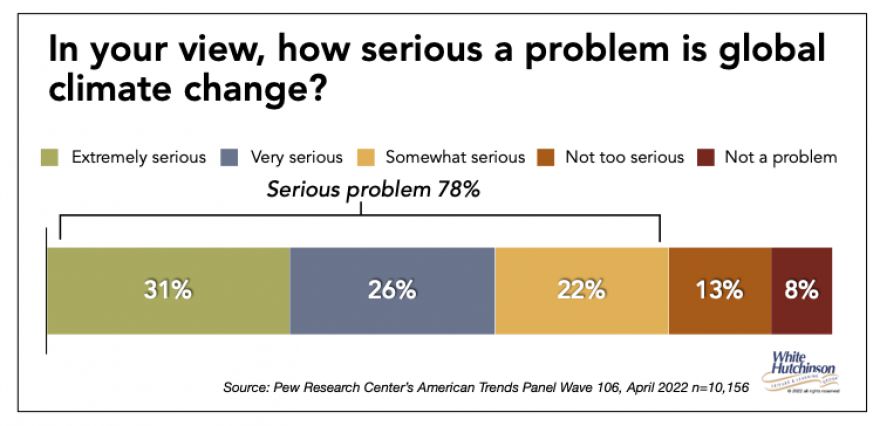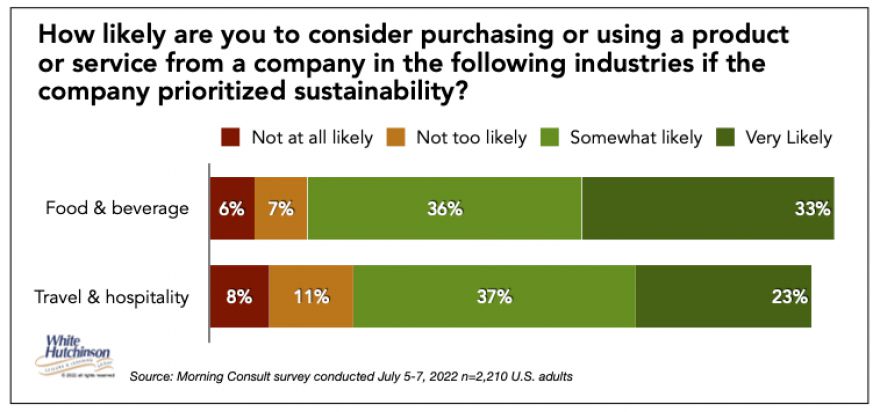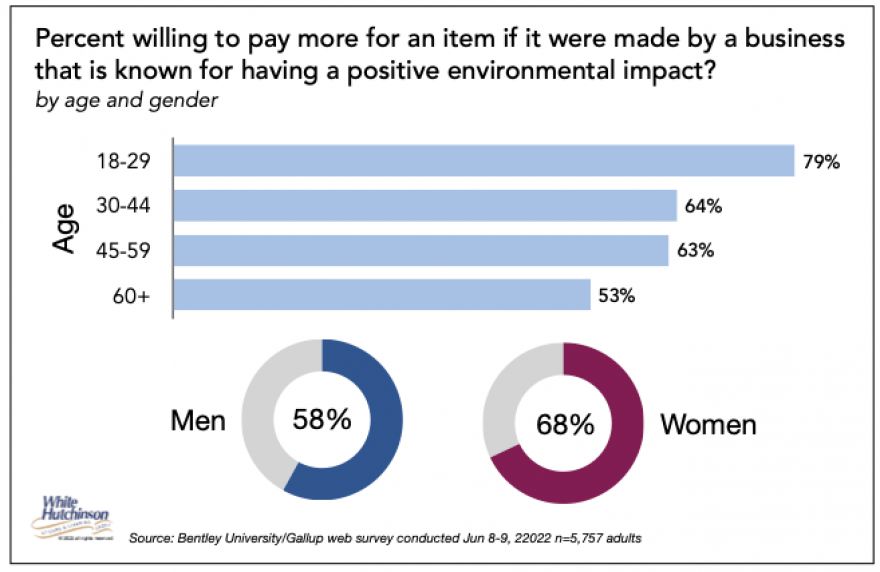
Vol. XXII, No. 12, December 2022
- Editor's corner
- The role of alcohol at location-based entertainment
- Dave & Buster's Q3 2022 results
- Death by a thousand cuts
- Should location-based entertainment prioritize sustainability?
- What do people find meaningful and fulfilling?
- Why the birth rate is declining
- Two different eatertainment venues
- Why market and financial feasibility studies need to be different today
- Time saved, or time well spent?
- Older Gen Z trending vegetarian, vegan, and flexitarian
Should location-based entertainment prioritize sustainability?
Climate catastrophes, wildfires, and other sustainability crises are increasing the public's awareness of climate change and its potential dangers. A Pew Research Center report found that 78% of adults now consider climate change a serious problem.

This heightened awareness and concern are affecting their purchasing behaviors.
There haven't been any recent studies on how sustainability affects people's behaviors toward attending location-based entertainment venues (LBEs), including family entertainment centers (FECs). Still, we have a study from this year for two related industries that can give us some indications.
A Morning Consult study of over 2,000 U.S. adults examined the impact of sustainability in the food & beverage and the travel & hospitality industries. It found a high likelihood of purchasing from a company if the company prioritized sustainability. It was very high in the food & beverage industry at 57%. Most LBEs serve food & beverages, so the study could be a good indicator of sustainability attitudes for LBEs.

The study found that people had greater trust in food and beverage restaurants that offer sustainable products and may be willing to pay a slight premium for sustainably sourced products.
When the study looked at the impact of climate change on people's everyday eating and drinking behaviors by age cohorts, Gen Z adults and Millennials, the primary target market for most LBEs, showed the most significant impact.
In June, a Bentley-Gallup Force for Good study examined Americans' willingness to pay a premium for a product. 63% of adults said they were willing to pay a premium for a product with a positive environmental impact. Here's the breakdown by age and gender.

Both older Gen Z/younger Millennials and women showed the highest willingness to pay a premium for a product with a positive environmental impact.
These studies indicate that LBEs that have and market their sustainable practices will have enhanced appeal, especially to younger adults and women, and could achieve premium rates.
Vol. XXII, No. 12, December 2022
- Editor's corner
- The role of alcohol at location-based entertainment
- Dave & Buster's Q3 2022 results
- Death by a thousand cuts
- Should location-based entertainment prioritize sustainability?
- What do people find meaningful and fulfilling?
- Why the birth rate is declining
- Two different eatertainment venues
- Why market and financial feasibility studies need to be different today
- Time saved, or time well spent?
- Older Gen Z trending vegetarian, vegan, and flexitarian


